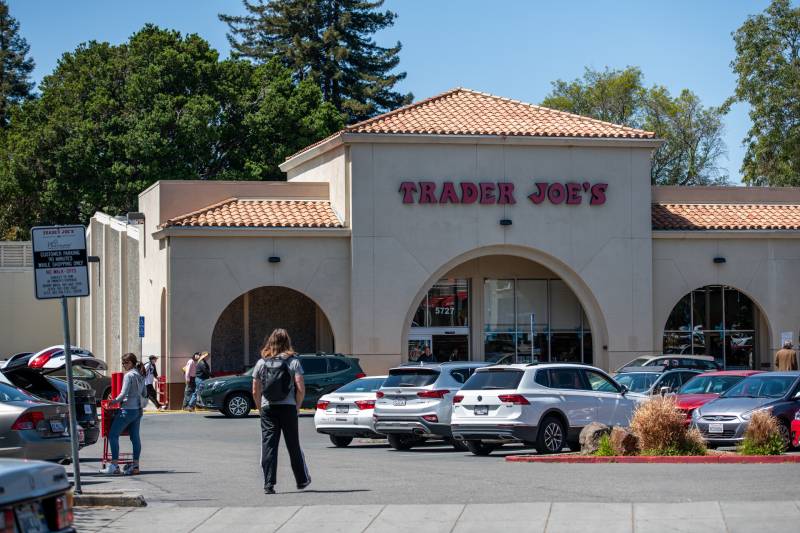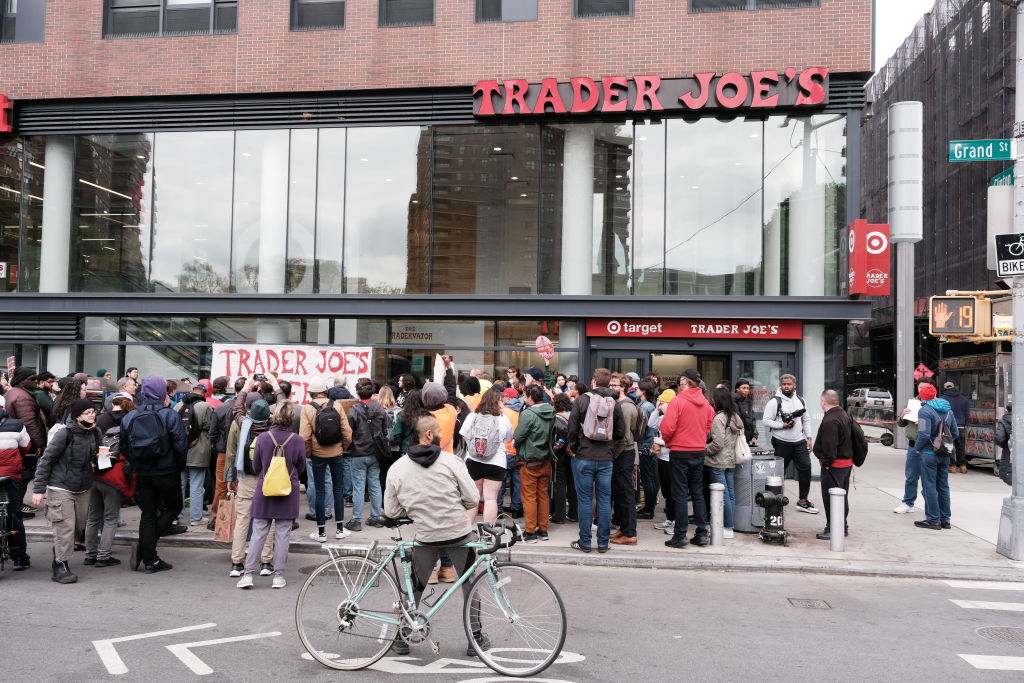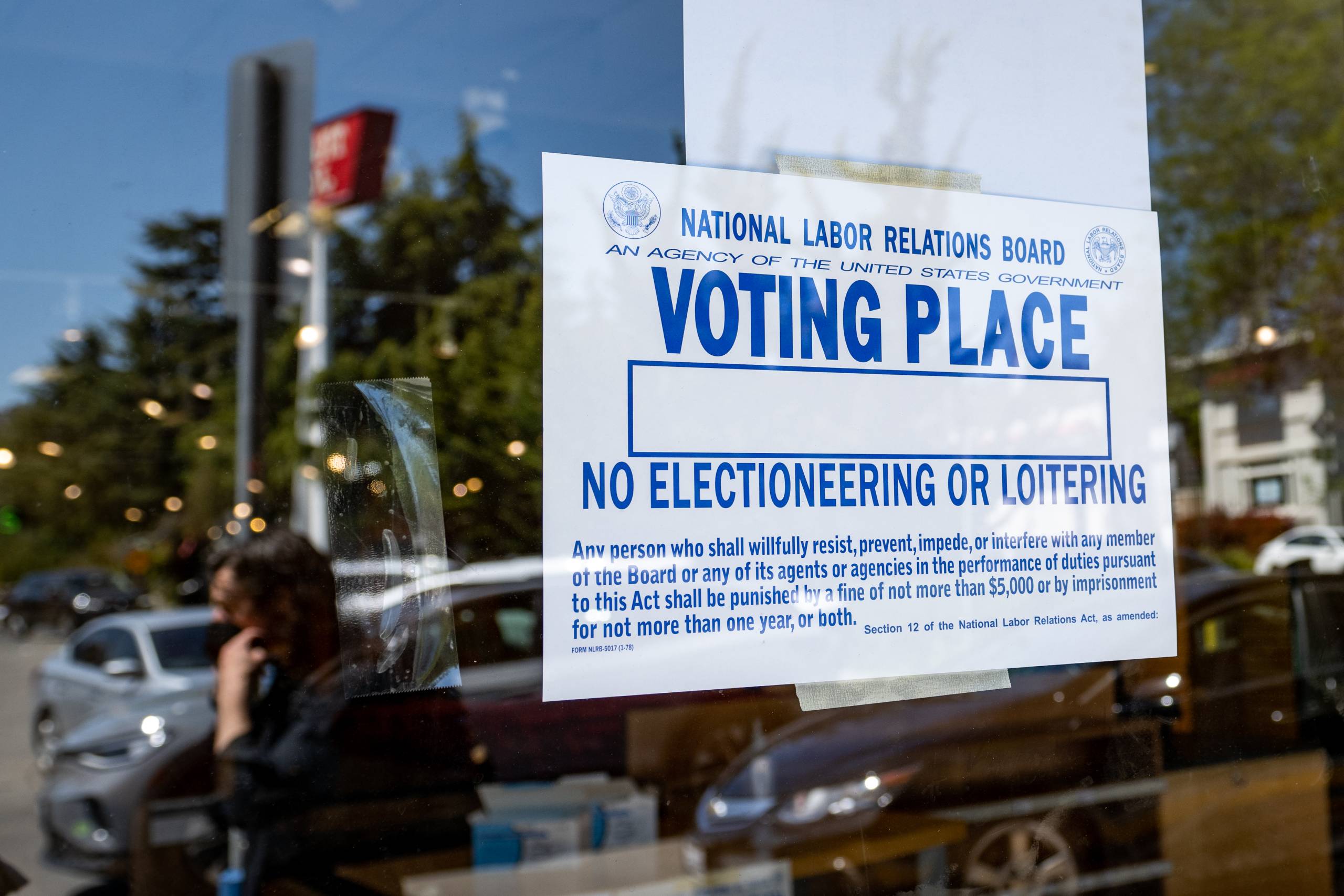A Trader Joe’s store in Oakland became the chain’s first in California to choose to unionize in a 73–53 vote, according to federal regulators who supervised the two-day election that closed Thursday evening.
Several employees, also known as “crew members,” reacted to the tally results by cheering in the parking lot of the Rockridge neighborhood supermarket, as others jumped with joy and pumped their fists on videos posted on social media.
“It plants a seed not only in our state but everywhere in the country that you can do this,” Dominique Bernardo, 39, a Trader Joe’s Rockridge worker who pushed for the union campaign, told KQED. “Just regular old crew members who never organized a day in their life could still manage to pull it off against a huge company.”
But even as pro-union workers in Oakland celebrated, some lamented an election outcome at another Trader Joe’s store, this one in New York City, on the same day. Employees at the Manhattan location tied on a 76–76 vote, the National Labor Relations Board confirmed, which means that store narrowly missed the majority required to opt for representation by Trader Joe’s United, an independent union founded by workers at the grocery store giant.
“That was heartbreaking,” said Bernardo, who has worked at the chain for 18 years. “But it’s clear how close the vote was in New York, and I think the company knows that the path they are going on is unsustainable and they need to start listening to their employees.”
Both parties have up to five business days to file any objections to the vote. If none are received, the NLRB certifies the results. And if the results are in favor of union representation, “the employer must begin bargaining in good faith after the results are certified,” said Kayla Blado, spokesperson with the agency.



